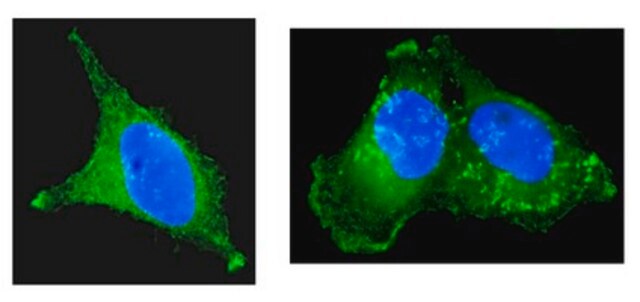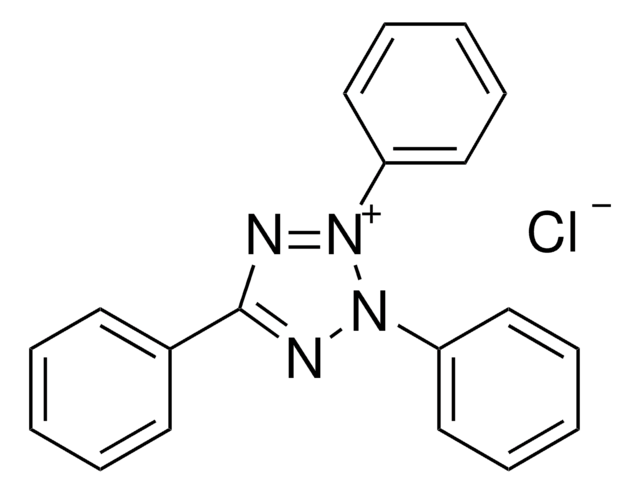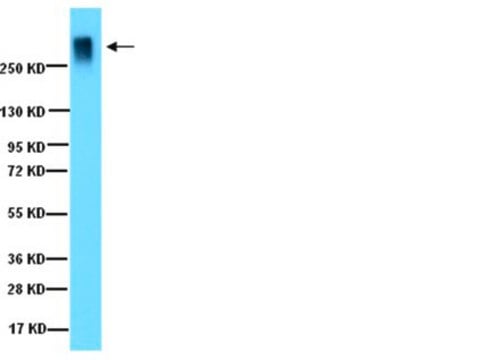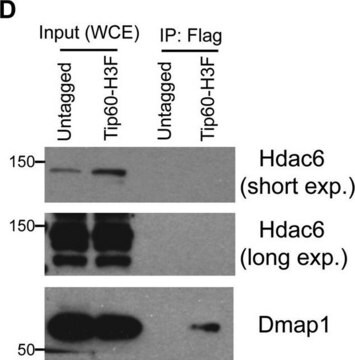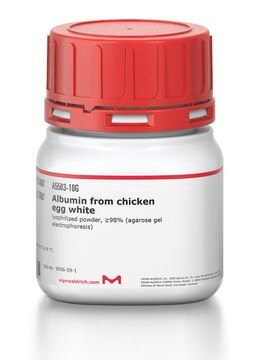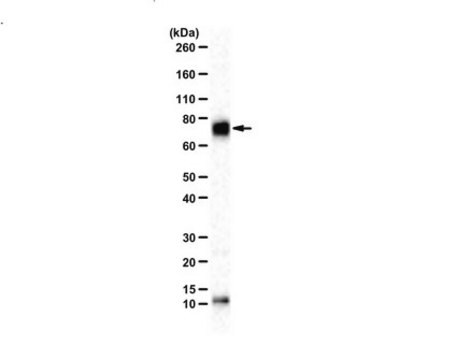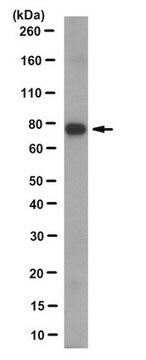09-881
Anti-acetyl Cortactin Antibody
from rabbit, purified by affinity chromatography
Synonym(s):
Amplaxin, Oncogene EMS1, Src substrate cortactin
About This Item
Recommended Products
biological source
rabbit
Quality Level
antibody form
affinity isolated antibody
antibody product type
primary antibodies
clone
polyclonal
purified by
affinity chromatography
species reactivity
mouse, human
species reactivity (predicted by homology)
Drosophila (based on 100% sequence homology), rat (based on 100% sequence homology)
technique(s)
western blot: suitable
NCBI accession no.
UniProt accession no.
shipped in
wet ice
target post-translational modification
acetylation (not specified)
Gene Information
human ... CTTN(2017)
General description
Recent research efforts show cortactin is acetylated in vivo and is deacetylated by HDAC6 (Histone deacetylase 6). HDAC6 is a tubulin-specific deacetylase that regulates microtubule-dependent cell movement. In recent studies it was demonstrated that HDAC6 binds cortactin and alters the ability of cortactin to bind F-actin by modulating a “charge patch” in its repeat region. Findings suggest that, in addition to its role in microtubule-dependent cell motility, HDAC6 influences actin-dependent cell motility by altering the acetylation status of cortactin, which, in turn, changes the F-actin binding activity of cortactin. The acetylation level of cortactin may correlate to tumor metastases and acetylated cortactin may be considered a potential metastasis marker.
Specificity
Immunogen
Application
Cell Structure
Cytoskeleton
Quality
Western Blot Analysis: 2.5 µg/ml of this antibody detected Cortactin on 10 µL of HeLa-Anti-Cortactin immunocomplex treated with TSA/Nicotinamide.
Target description
Physical form
Storage and Stability
Analysis Note
HeLa-Anti-Cortactin immunocomplex treated with TSA/Nicotinamide
Other Notes
Disclaimer
Not finding the right product?
Try our Product Selector Tool.
recommended
Storage Class Code
12 - Non Combustible Liquids
WGK
WGK 1
Flash Point(F)
Not applicable
Flash Point(C)
Not applicable
Certificates of Analysis (COA)
Search for Certificates of Analysis (COA) by entering the products Lot/Batch Number. Lot and Batch Numbers can be found on a product’s label following the words ‘Lot’ or ‘Batch’.
Already Own This Product?
Find documentation for the products that you have recently purchased in the Document Library.
Our team of scientists has experience in all areas of research including Life Science, Material Science, Chemical Synthesis, Chromatography, Analytical and many others.
Contact Technical Service